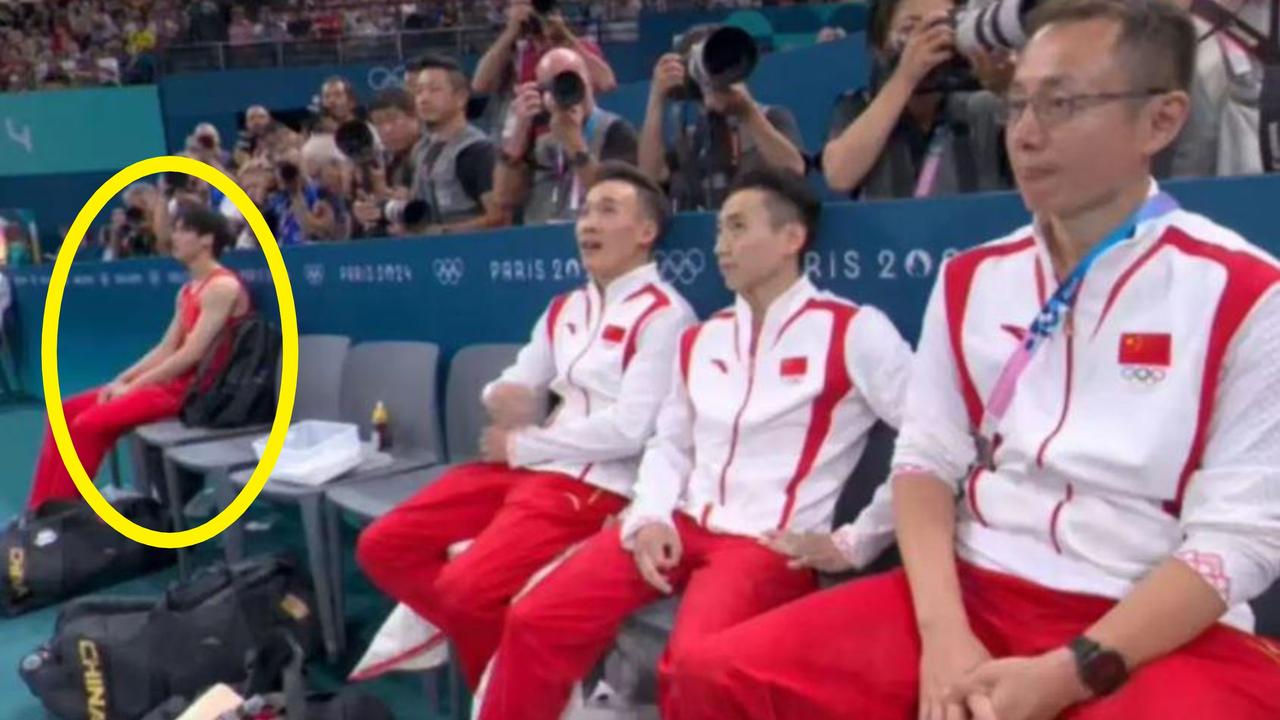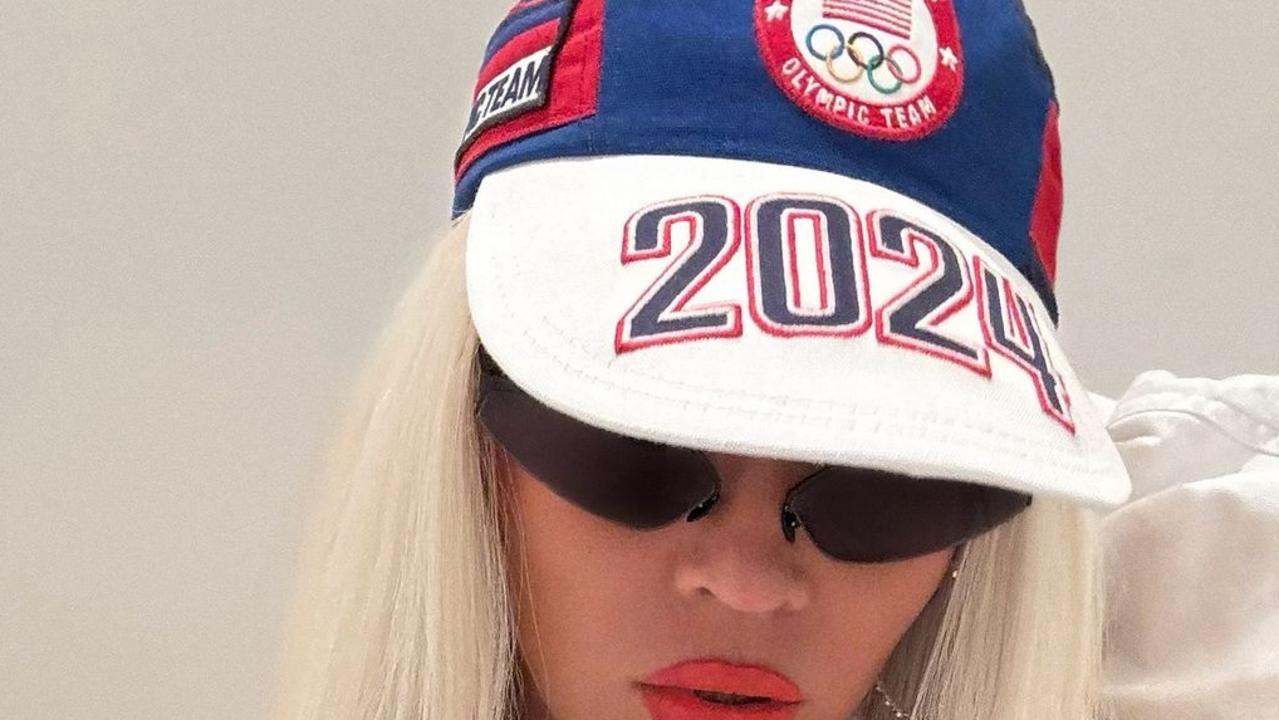Australian public back supporting Olympic swim team after London Games debacle
THE once-shiny Dolphin Express sat idle after a London Games smeared with boorish behaviour and bullying. But this crop of swimmers is winning back the fans.
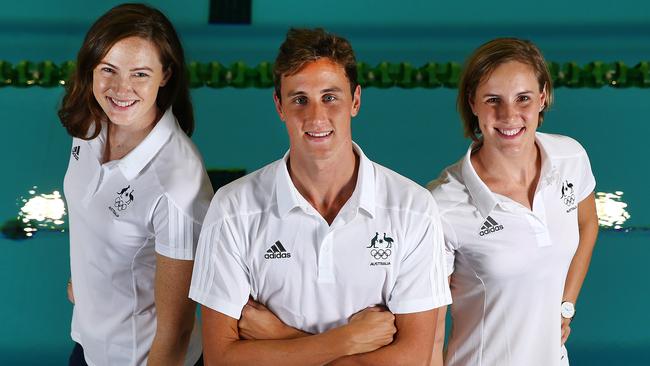
Olympics
Don't miss out on the headlines from Olympics. Followed categories will be added to My News.
SWIMMING Australia president John Bertrand stood on the pool deck at the Olympic trials in Adelaide this week and said, “our aim is to get everybody back on the bus.”
Former journalist and long-time swimming media manager Ian Hanson looked up at the packed grandstand and shouted over the blaring music and cheering crowd, “You’d better make it a double-decker.”
It’s a fair call. After an outstanding week’s swimming at the South Australian Aquatic Centre there is no shortage of people climbing back on board the Dolphins Express, a once-shiny jam-packed vehicle which found itself with plenty of empty seats after the London Olympics.
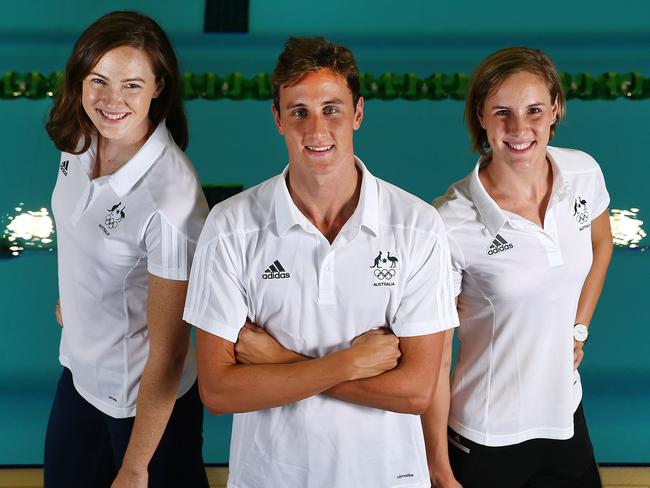
In terms of public expectation and support Australia’s Olympic swimmers are in many ways a team within a team. Beginning with the emergence of Kieren Perkins in 1990 and through the golden period of Ian Thorpe, Grant Hackett and Susie O’Neill at the Sydney Olympics and beyond, it seemed the Aussie swim team could do no wrong. The public adored them, and the sponsorship dollars flowed.
But we weren’t represented too well in London, where allegations of boorish behaviour, bullying and use of banned substances against a small number of the male athletes were compounded by a lack of gold medals.
Public support dropped off, and when that happens the sponsors aren’t far behind. It has taken a concerted three-year effort, culminating in Thursday night’s team announcement, to put together an Australian team capable of winning back hearts and wallets. The report card won’t be written until after Rio de Janeiro, but the relieved looks on the faces of Bertrand and his inner circle throughout the week would suggest the bus is back on the road and filling fast.
The team for Rio has plenty to like about it. To borrow a cliche from the football writers’ handbook, it is “a classic blend of youth and experience” — with enough potential feel-good photo-stories to bring a tear to a cynic’s eye.
There’s the “old hand” Alicia Coutts at the ripe age of 28 and the 17-year-old kids Tamsin Cook and Kyle Chalmers; the love-bird world champs Emily Seebohm and Mitch Larkin; sister and brother act David and Emma McKeon and the Bohls — coach Michael and his daughter Georgia. There’s battlers like Jake Packard and Travis Mahoney, and bolters like Mack Horton and Jack McLoughlin who swam their way into the top five all-time Australian 1500m freestyle list in the very last race of the trials.
But for all that, the stars of the show will no doubt be Queensland sprint star Cameron McEvoy and the Campbell sisters, Cate and Bronte, who if they weren’t real, could have been a figment of Hanson’s PR-centric imagination.
The two fastest female swimmers in the world, they are like characters in a sit-com: funny, engaging, prone to finish each other’s sentences … and fiercely competitive.
As Cate, the older by two years, said after she and Bronte had beaten off a ferocious challenge from fellow Queenslander Emma McKeon to finish one-two in the 100m final, “fortunately it was the Campbells who prevailed, sorry Emma … sorry-not-sorry … not that sorry …”
McEvoy is a different kettle of fish, in more way than one. An astrophysics student with ambitions to be the first Olympian in space, he is just as comfortable talking to the media about protons, neutrons and black holes as he is discussing split-times and tumble-turns.
He is also, as of Monday night, arguably the fastest 100m swimmer in history, his time of 47.04 seconds just 0.13sec slower than the world mark set by Brazil’s Cesar Cielo in 2009, but the quickest unaided by the now-banned supersuits.
“I regard that as the fastest swim ever,” said Australian coach Jacco Verhaeren. “The other two swimmers who have gone faster were great athletes, but they were in suits and we know the benefits of those suits, so that’s pretty amazing.”
Almost as amazing as how fast the Australian public seems to have forgotten the sour taste left in their collective mouths after the debacle that was London and lined up to embrace the new breed.
One only had to listen to national radio station Triple J a few hours prior to Thursday’s team announcement to get a handle on public sentiment. The hosts called on listeners to come up with a nickname for McEvoy, who earlier in the week had become the first Australian to win the 100m-200m-400m treble at a national championship.
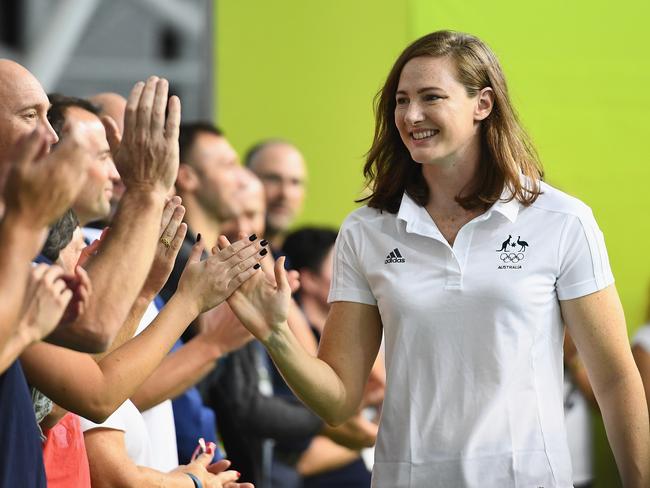
Calls came in from all over the country, and while the winner, “Cammerhead Shark”, is at long odds to catch on, it’s the thought that counts. Three years ago, after disciplinary action was taken against members of the men’s 4x100 freestyle relay team, any suggestions of what to name our leading swimmers would probably not have been suitable for public airing.
That was before a deep-reaching inquiry into the goings-on in London and a total overhaul of Swimming Australia that saw the appointment of Australia II skipper Bertrand, CEO Mark Anderson and former Dutch coach Verhaeren.
Ask any of them about the top-to-bottom transformation of the Australian team, and the word “values” will feature heavily.
“We believe in values rather than rules because values are something you have yourself,” Verhaeren said.
One of those values — and one that was perceived to be lacking among certain members of the team in London — is humility. You won’t hear anyone on this team talking about how many medals they are going to win or what they will do to the opposition.
“The biggest lesson from four years ago is not to get ahead of ourselves,” Verhaeran said. “We will not talk about medals, medal opportunities or records. Our goal is peak performance.
“We believe that sticking to the process and doing things right makes you the best swimmer you can be and not anything else. That doesn’t mean they don’t dream of medals or records or achieving results but this is the way we work.”
Regardless of the number or colour of medals won, Verhaeren believes the Australian public is in for quite a ride.
“It is difficult for me to compare because I wasn’t there in the golden era when swimmers were like celebrities but I must say I felt a lot of excitement this week,” he said. “I think swimming is getting its mojo back and that is a great thing for Australia.”



